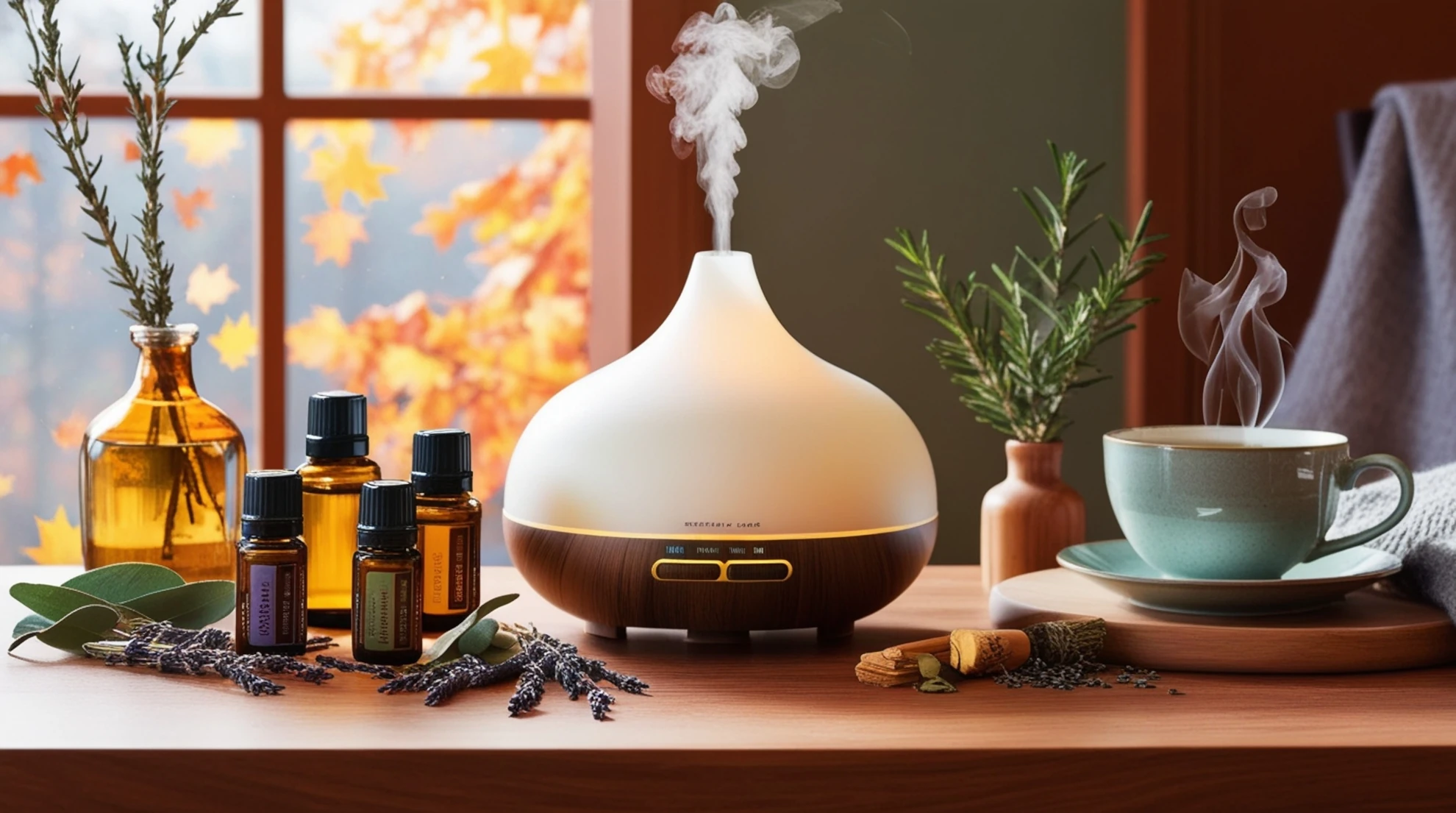Natural Relief – Essential Oils for Cold and Flu Season
As the leaves change and temperatures drop, many of us find ourselves reaching for extra support during cold and flu season. If you’re looking for a natural way to boost your wellness routine, essential oils might be just what you need! Today, I’m excited to share a powerful blend of organic essential oils that can help you stay comfortable when those seasonal sniffles strike.
My Recommended Essential Oil Blend
Here’s our favorite combination for cold and flu season support:
– 5 drops Tea Tree oil
– 2 drops Lavender oil
– 5 drops Eucalyptus radiata oil
– 5 drops Oil of Oregano
Important Note: Tea Tree oil should not be used in households with pets, as it can be harmful to them.
Detailed Benefits of Each Oil
Let’s dive deeper into why each of these oils is so beneficial:
- Tea Tree Oil
– Powerful antimicrobial properties
– Helps boost immune system response
– Can help relieve congestion when inhaled
– May reduce inflammation in the respiratory tract
– Known to help fight various types of bacteria and viruses
- Lavender Oil
– Promotes restful sleep, crucial for recovery
– Has natural calming effects to reduce stress
– Contains compounds that may help reduce inflammation
– Can help ease headaches often associated with colds
– May help reduce body aches and discomfort
- Eucalyptus Radiata
– Opens up airways and promotes easier breathing
– Contains expectorant properties to help clear mucus
– Provides cooling relief for body aches
– Supports overall respiratory health
– May help reduce fever naturally
- Oil of Oregano
– High in antioxidants
– Contains natural compounds with antimicrobial properties
– Supports healthy immune system function
– May help reduce inflammation throughout the body
– Can help ease digestive discomfort often accompanying flu
Pet-Safe Alternative Blend
For households with furry friends, we recommend this pet-safe alternative blend:
Gentle Wellness Blend (Pet-Friendly)
– 4 drops Chamomile oil
– 3 drops Cedarwood oil
– 4 drops Rosemary oil
– 2 drops Sweet Orange oil
Benefits of Pet-Safe Oils
- Chamomile Oil
– Gentle yet effective immune support
– Promotes relaxation and comfort
– Safe for use around most pets
- Cedarwood Oil
– Supports respiratory health
– Has a warm, woodsy aroma
– Generally well-tolerated by pets
- Rosemary Oil
– Supports clear breathing
– Contains antioxidant properties
– Use in moderation around pets
- Sweet Orange Oil
– Uplifting aroma
– Supports overall wellness
– Safe for most household pets
When using any essential oils in homes with pets, always:
– Use less than you would without pets
– Ensure good ventilation
– Give pets the option to leave the room
– Observe your pets for any adverse reactions
– Consult with a veterinarian if you have concerns
How to Use
In a Diffuser
The easiest way to enjoy the benefits of either blend is through aromatherapy. Simply add the oils to your diffuser according to the recipe above, and let the comforting aroma fill your space. Many people report feeling relief as soon as they turn on their diffuser!
In a Warm Bath
For an extra soothing experience, try adding your chosen blend to a warm bath. The combination of warm water and aromatic oils can be incredibly comforting when you’re feeling under the weather.
When to Start
The key to getting the most benefit from essential oils is to start using them at the first sign of discomfort. As soon as you feel those initial symptoms – a slight chill, fatigue, or that telltale tickle in your throat – it’s time to reach for your oils!
Quality Matters
For the best results, we recommend using only high-quality, organic essential oils. When possible, look for oils that are approved for medicinal use. This ensures you’re getting the purest, most effective products for your wellness routine.
Getting Started
Ready to try this natural approach to seasonal wellness? Gather your oils and your diffuser, and you’ll be prepared when cold and flu season arrives.
Remember, while essential oils can be a wonderful addition to your wellness routine, they should complement, not replace, medical advice. If symptoms persist or worsen, always consult with a healthcare professional.
